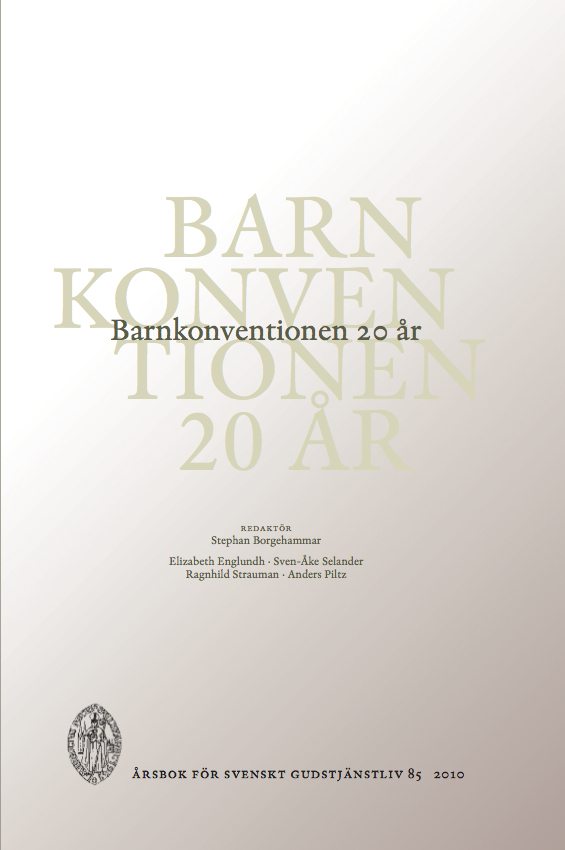Barnkonventionen och barns bästa i kristna trossamfund
Abstract
The Implementation of the Declaration on the Rights of the Child in Christian Denominations in Sweden
The UN General Assembly adopted the Convention on the Rights of the Child in 1989. This essay studies how Christian denominations – primarily the Church of Sweden, the Swedish Mission Covenant Church and the Catholic Church – organized their activities for children and youth aged 0–18 in response to the Convention.
The study applies a theological-functional perspective, which means that formal regulations of church membership and democratic principles are discussed. In addition, the study investigates how the church service is organized to relate to the religious education and development of children and youth, as well as how programs for Christian education can be designed and how churches can be inspired to take on social welfare responsibilities.
This study has shown that the Christian denominations in Sweden have been following the guidelines in the UN Convention on the Rights of the Child, in many cases long before the Convention was adopted in 1989. A continuing debate on democratization in the denominations, as well as the increase of knowledge during the latter part of the twentieth century of the rights of children to form their own understanding of religious faith, has contributed to progress in this area.
The Convention’s definition of children as being 0–18 years old and the view that children are developing individuals, has further emphasized the importance of recognizing that they – especially young people 12–18 years old – should have the right to decide which denomination they want to be a member of and to increasingly be able to influence decisions made in their chosen denomination.
Thus, implementation of the following rights: 1) the right to choose church membership or refrain from it, 2) the right to participate in church services according to one’s own abilities, 3) the right to religious education from a broad perspective, as well as 4) the right to receive social welfare and the opportunity to develop one’s own social responsibility for others, can form a functional interaction which takes into consideration both the fundamental principles of the Christian faith and the UN Convention on the Rights of the Child.
Keywords: UN Convention on the Rights of the Child, Swedish Christian denominations, a theological-functional perspective, church membership, church services, religious education, social welfare, social responsibility.
Downloads
Published
Issue
Section
License
© the authors, Laurentius Petri Sällskapet för Svenskt Gudstjänstliv and Artos & Norma Bokförlag. Copying and using material from Svenskt Gudstjänstliv for scholarly purposes is permitted as long as the source is indicated. For other uses, please contact the respective author as well as the publisher. Special restrictions may apply to images.


